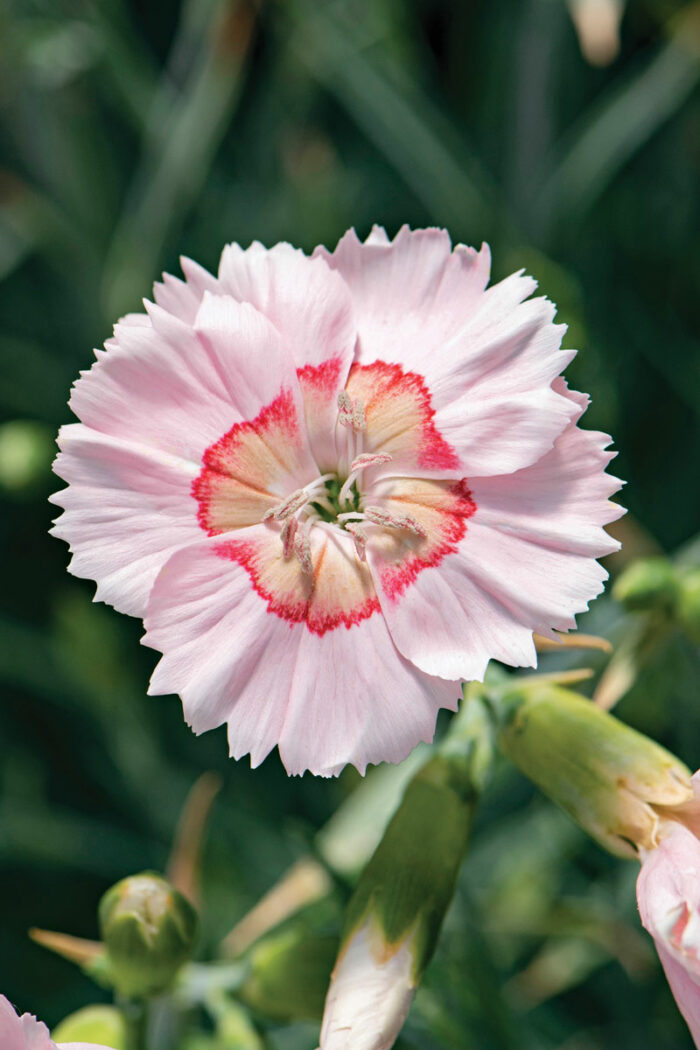
We all have certain plants that immediately come to mind when thinking of a garden in spring. For many, these are daffodils, tulips, and hyacinths skirting the trunks of flowering magnolias, cherries, and lilacs. But as William Cullina discusses in his article 9 Perennials to Liven Up Your Spring Garden, there are lots of out-of-the-ordinary or simply underappreciated plants that can elevate your spring garden to something spectacular.
Find some outstanding spring plants for the Southern Plains below. And discover even more surprising spring stars in 9 Perennials to Liven Up Your Spring Garden.
1. Celandine Poppy
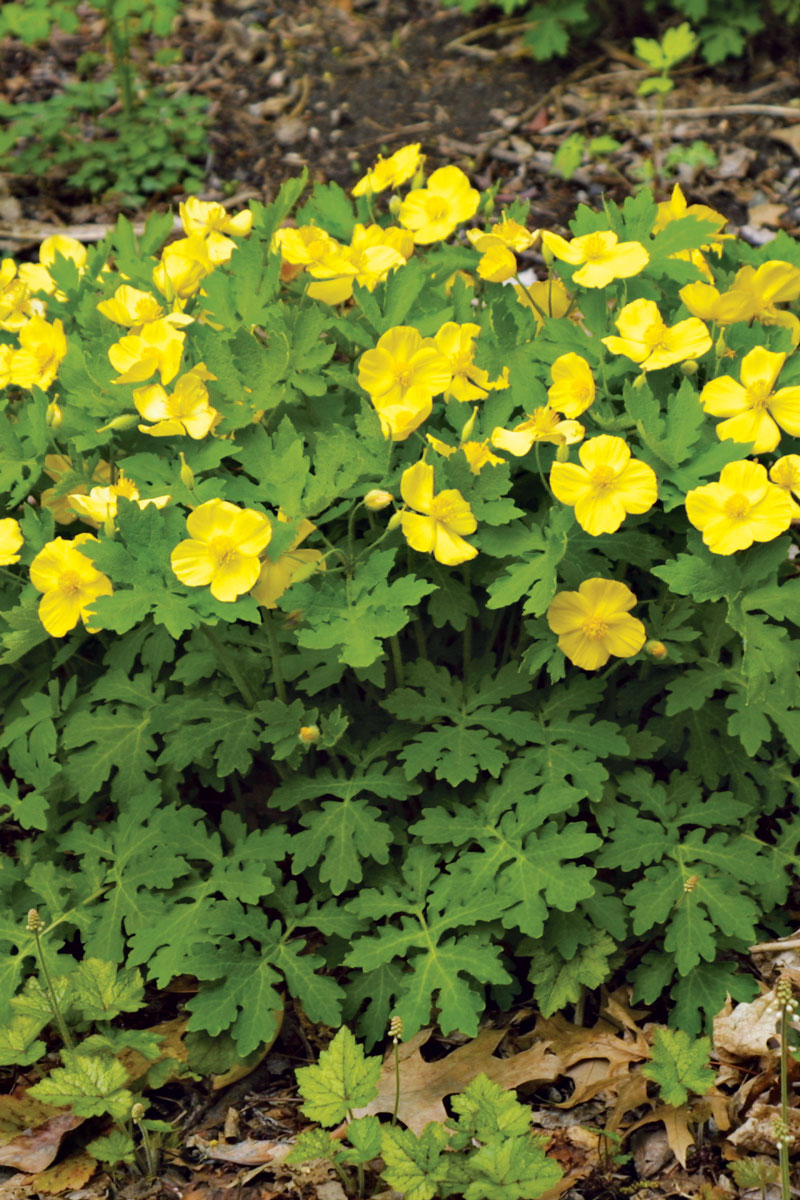
Name: Stylophorum diphyllum
Zones: 4–9
Size: 12 to 18 inches tall by 9 to 12 inches wide
Conditions: Partial to full shade; medium to wet soil
Native range: Eastern North America
The sunny blooms of this woodland beauty always fill my heart with joy. Not to be confused with the aggressive lesser celandine (Ranunculus ficaria), this native poppy produces clusters of large yellow blooms in spring atop mounds of bold, deeply lobed foliage. Celandine poppy tolerates heavy shade and wet soil, where it will self-sow. In my hot, dry garden, the plant goes dormant in summer. It’s a lovely addition to wildflower and woodland gardens, and deer avoid the toxic foliage (pet owners, use caution). Plant this beauty among late-emerging perennials in shade beds for a stunning combo.
2. ‘Blueberry Sundae’ Baptisia
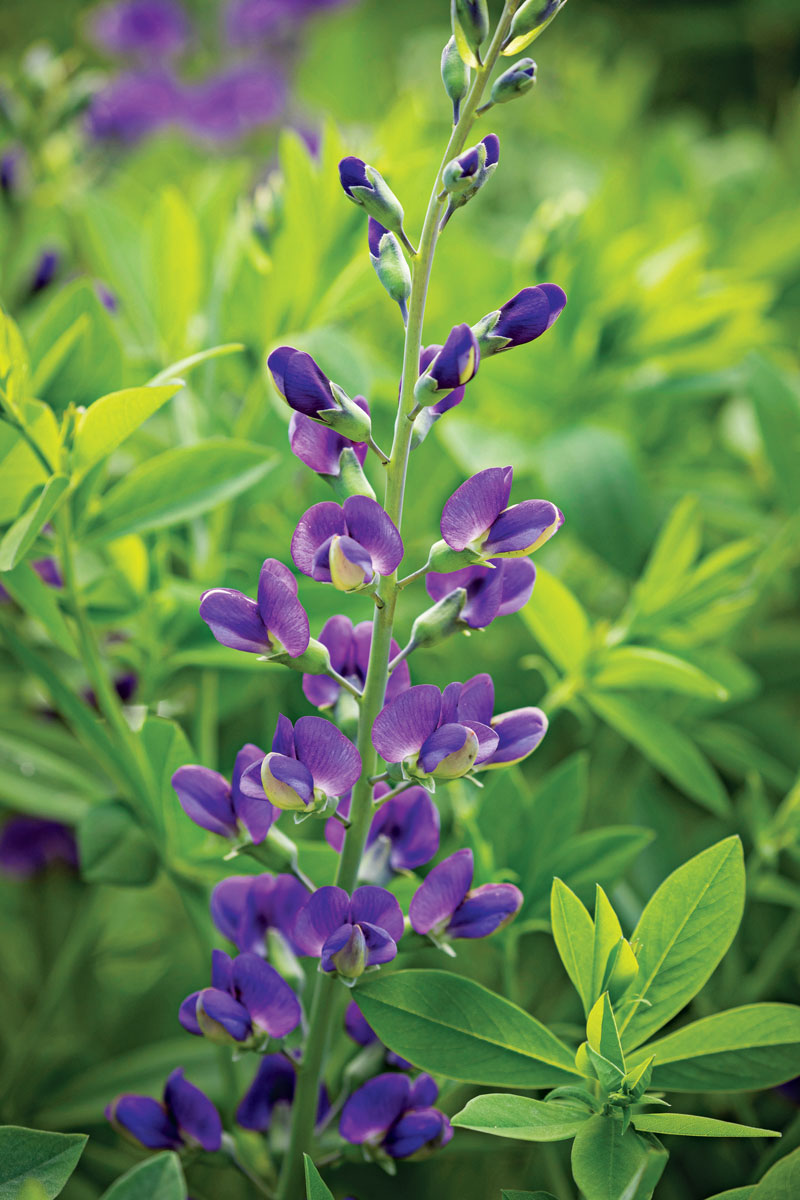
Name: Baptisia ‘Blueberry Sundae’
Zones: 4–9
Size: 36 inches tall and 30 to 36 inches wide
Conditions: Full sun to partial shade; average to lean, well-drained soil
Native range: Hybrid
Recent breeding efforts have led gardeners to discover this underutilized native perennial. Baptisias buzz with pollinators in late spring to early summer when spires of blooms stand above the blue-green foliage. ‘Blueberry Sundae’ is an improved hybrid with vivid indigo-blue flowers and a compact, mounding form. Autumn brings decorative seedpods popular for inclusion in dried arrangements. This long-lived, low-maintenance perennial has a deep taproot and doesn’t tolerate moving once established. ‘Blueberry Sundae’ baptisia is slow to get going, but well worth the wait. The plant is deer resistant and drought tolerant also.
3. ‘Scarlet Storm’ Flowering Quince
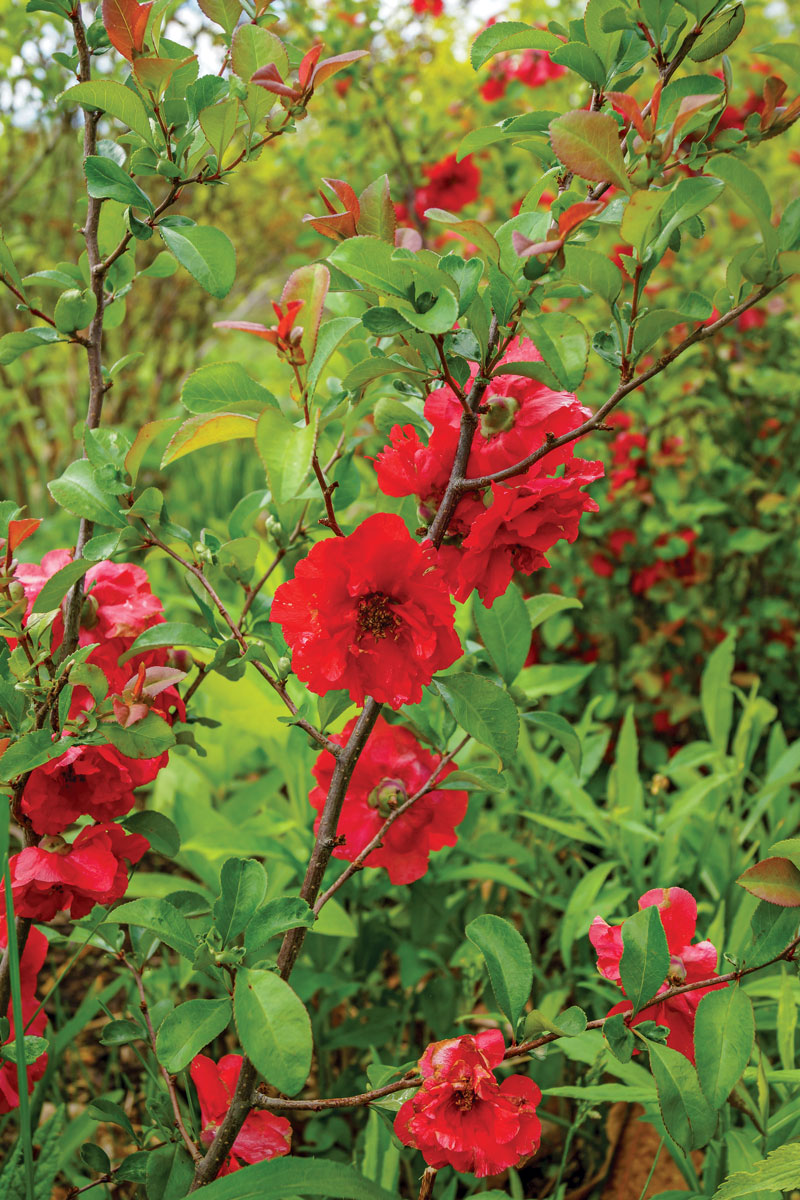
Name: Chaenomeles ‘Scarlet Storm’
Zones: 5–9
Size: 4 to 5 feet tall and 3 to 4 feet wide
Conditions: Full sun to partial shade; adaptable to a variety of soil types
Native range: Hybrid
Seeing a flowering quince blooming on a long-abandoned Texas homestead should tell you something: this is one tough shrub. Drought, erosion, clay soil—flowering quince takes all that and more. And new thornless, fruitless, more-compact cultivars bring flowering quince into the 21st century. ‘Scarlet Storm’ blooms longer than old-fashioned varieties, with a profusion of scarlet red blooms adored by pollinators. A bit of afternoon shade will help flowers last longer in our hot climate. The upright, multistemmed habit adds structure to perennial gardens and makes for an excellent hedge.
4. ‘Georgia Peach Pie’ Dianthus
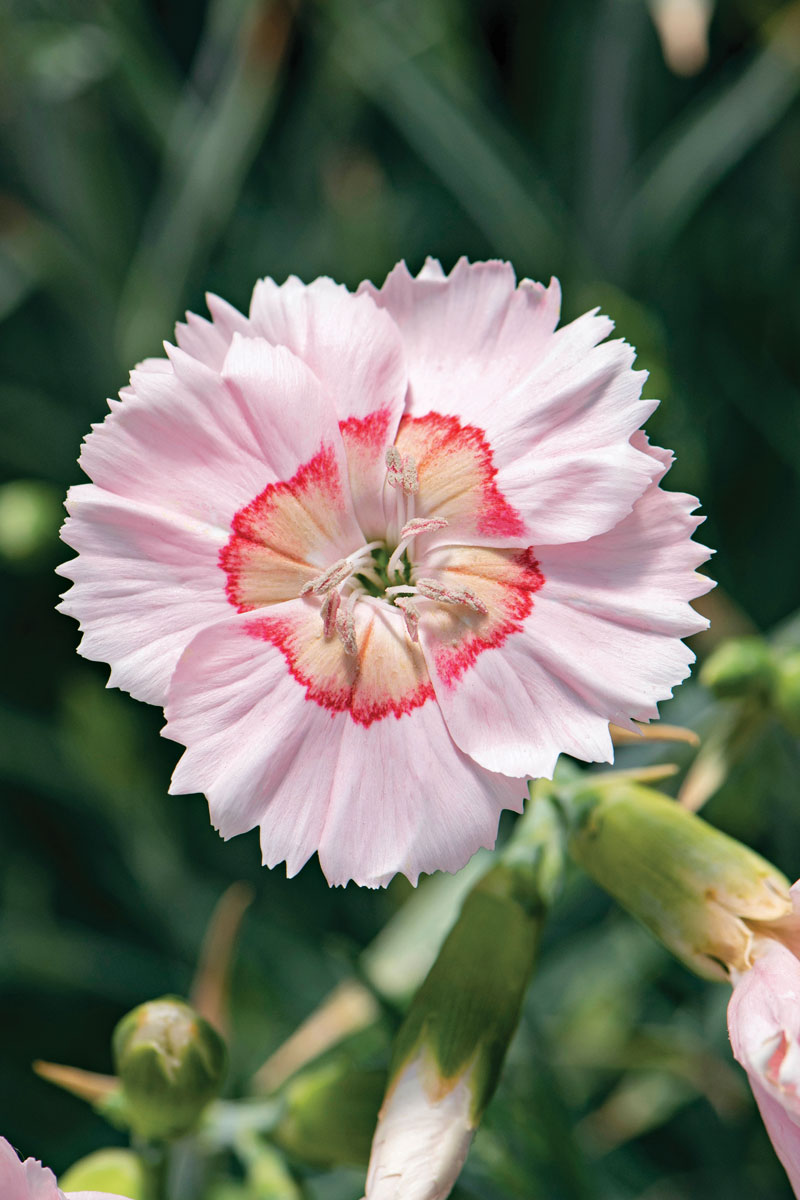
Name: Dianthus ‘Georgia Peach Pie’
Zones: 5–9
Size: 8 to 12 inches tall and wide
Conditions: Full sun; neutral to alkaline, well-drained soil
Native range: Hybrid
Dianthus is another old-fashioned plant that deserves a second look. I grow it as much for the textural, blue-green foliage as for its clove-scented flowers. With repeat blooming and evergreen foliage (in mild climates), ‘Georgia Peach Pie’ offers a stunning update with larger blooms and a compact habit. The flowers are blush pink, with striking centers of soft peach ringed in deep coral. I can’t resist cutting handfuls for fragrant bouquets. Easy to grow and incredibly versatile, this dianthus is heat and drought tolerant once established, and it resists browsing by deer and rabbits.
Kimberly Toscano is a horticulturist and garden designer from Stillwater, Oklahoma.
Fine Gardening Recommended Products
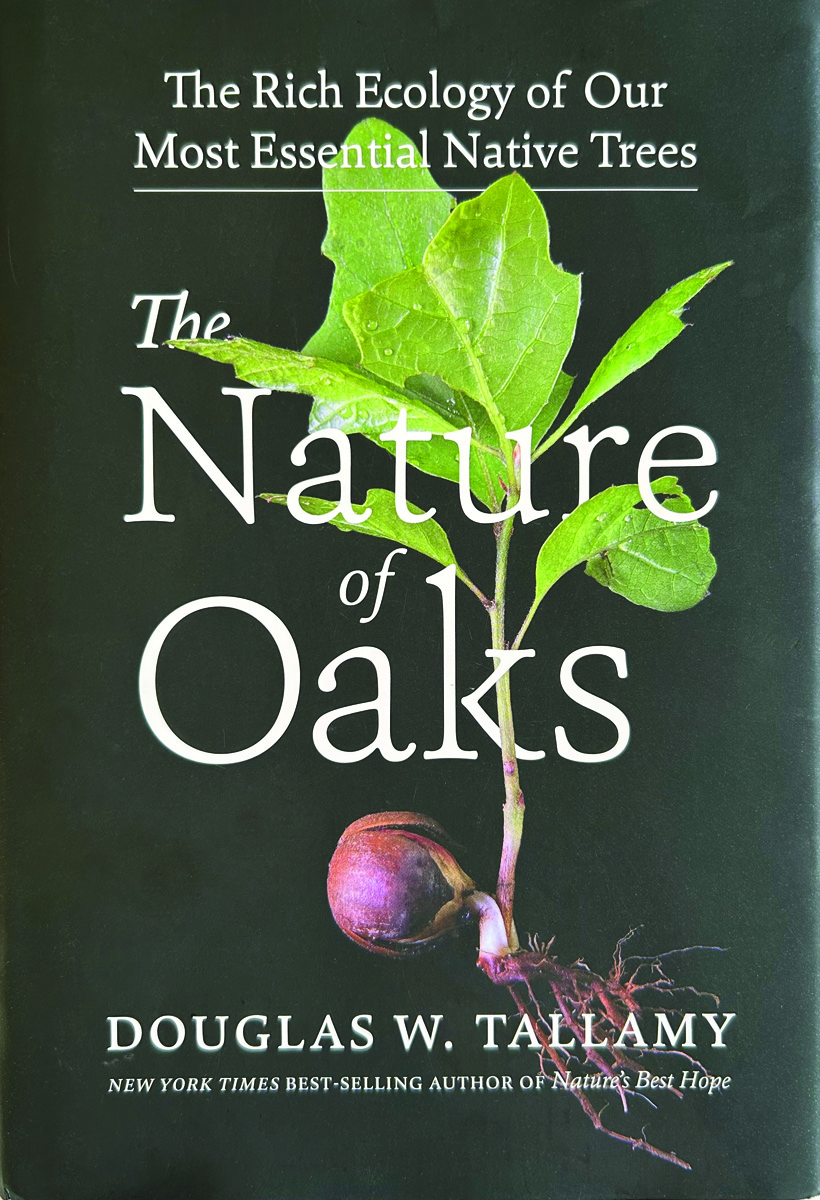
The Nature of Oaks: The Rich Ecology of Our Most Essential Native Trees
Fine Gardening receives a commission for items purchased through links on this site, including Amazon Associates and other affiliate advertising programs.

ARS Telescoping Long Reach Pruner
Fine Gardening receives a commission for items purchased through links on this site, including Amazon Associates and other affiliate advertising programs.


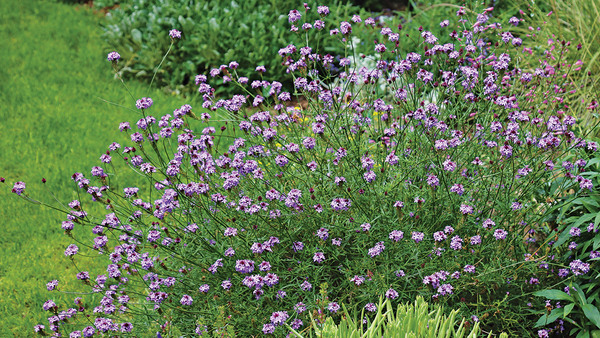
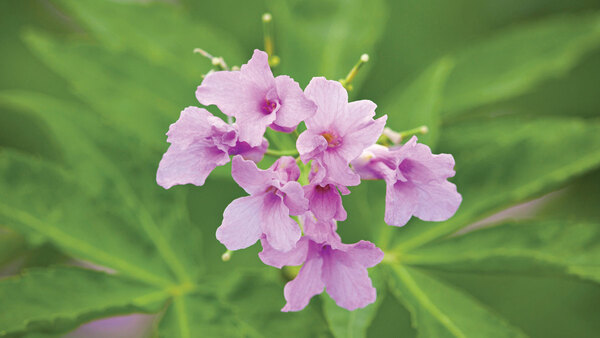
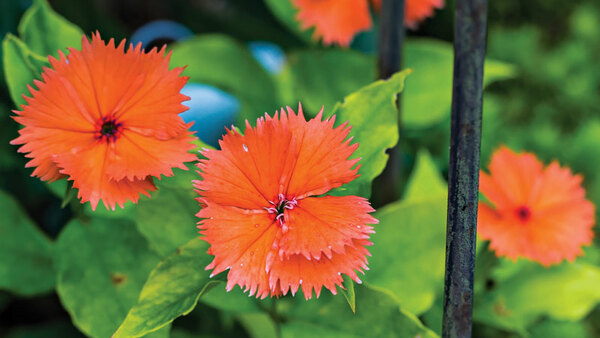
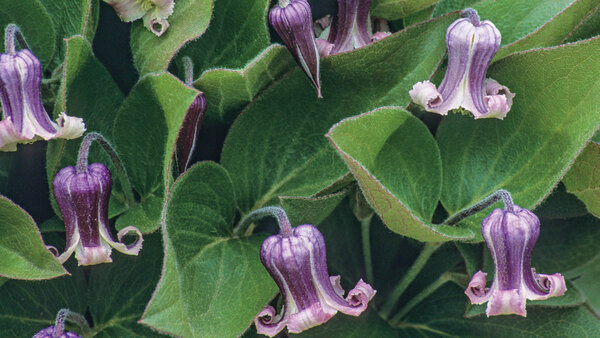
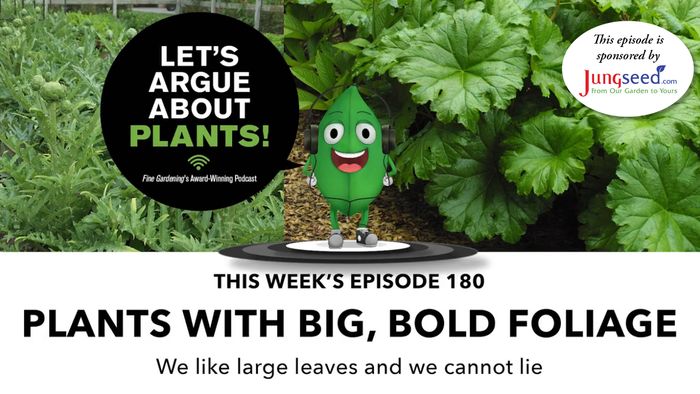
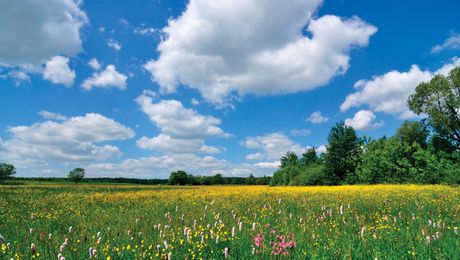











Comments
Log in or create an account to post a comment.
Sign up Log in